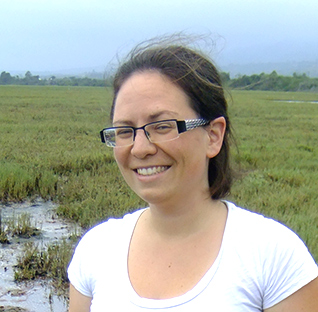Originally posted May 12, 2009
I’m assuming you’ve done your research and now have a list of professors who study things that interest you. You now face a massively important decision. Your choice of an advisor can easily make or break your graduate school experience. A good advisor will challenge you, support you and generally make your life live-able while a bad advisor will make graduate school a truly miserable experience. The situation is complicated by the fact that the “right” advisor for one person may not be the “right” advisor for someone else.
The most important tip I can give you is to talk to the graduate students already in the lab to which you’re applying. Don’t just chat with them, really grill them for information. Try to get them to go out to lunch with you or to go out for a drink, just make sure that they’re in an environment where they feel like they can talk about their advisor without him/her overhearing.
—–
When you have the grad student’s attention, here are some questions that you should ask:
1) How involved does their advisor get in student projects? Some incoming students have never conducted research before and quite honestly require some hand-holding. Other students are more independent and would prefer to have a professor that lets them do their own thing. Be honest to yourself about what kind of student you’re likely to be and make sure you match yourself with a professor who can meet your needs.
2) How often is their advisor around? Some hot shot professors spend a lot of time traveling the globe to give seminars and aren’t around much if at all. Others are physically on campus, but might as well be on Mars because they have so many things going on they simply aren’t available to you. Others seem to have so much free time on their hands that they end up micromanaging your project. Figure out how much time you think you’ll need from an advisor. Do you want an advisor who is always down the hallway with their door open, ready to answer your questions at a moments notice? Or are you OK with an advisor who you need to schedule an appointment with a few days in advance?
Importantly, find out when potential advisors are planning on taking their next sabbatical. If you’re looking into a 2-year Master’s program, it’ll be difficult for you to finish on time if your advisor is on another campus for half of your stay in their lab.
3) What is their advisor’s funding situation like? It’s great if you can find an advisor who just received NSF or NIH funding and can afford to fund you on their project. In general, life is significantly easier when you’re in a lab that has some money floating around. Especially in programs that don’t guarantee TA positions, being in a funded lab can relieve a lot of stress. That being said, it would be a bad idea to turn a lab down based solely on a lack of recent funding if the lab has a history of getting funded or if you already have funding yourself.
4) Is their advisor a nice guy/gal? This may sound like a really ridiculous question, but it’s important. My biggest mistake when applying to graduate schools the first time around was to not grill the graduate students about their advisor’s character. I ended up changing Master’s programs part-way through because it was clear that I could get a lot more out of my grad school experience elsewhere. Fortunately, I did things right the next time around and found a pair of professors who made excellent co-advisors.
5) How good is their advisor about getting them connected to the community? Does their advisor go with them to conferences and introduce them to the big names in the field? Has their advisor helped students in the past get positions after they graduate? What kind of positions? Some professors will be better at getting their students government jobs while others will be good at getting their students placed in research labs. Figure out where you want to end up after you get your degree and find a professor who helps their students reach that goal.
6) Does their advisor generally seem to watch out for his/her students? It’s really great to find an advisor who is genuinely invested in their student’s academic lives and research. Finding a professor who stays on top of your funding situation and helps you find TA positions or fellowships for which you’re eligible is a great catch. It’s also great to find a professor who helps their students write grant applications, reads their fellowship applications, etc.. There is a lot of variability in how much time and energy a professor will put towards these types of activities, but life runs a lot more smoothly when your advisor wants to help you out.
—–
If you don’t feel like the graduate students are being honest with you when they’re answering your questions face-to-face, feel free to e-mail them with more questions later on. This way they can answer at their own leisure and during a time when they’re not worrying about other people overhearing. I find a good ice breaker is to say something like, “OK, everyone has their weaknesses. If there were one thing about Dr. X that you would change, what would it be? The guy/gal can’t be perfect!”
I think the most important thing to keep in mind is that you need to be honest with yourself. If you think you’re going to need a lot of advice and attention from your advisor, then don’t join the lab of an over-extended professor. Knowing what you want and finding an advisor to match it will make your experience far more pleasant.


Leave a Reply